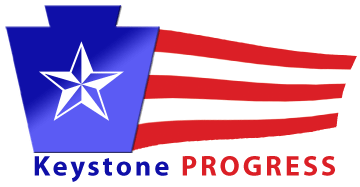Harrisburg – MarcellusMoney.org, a project of Common Cause PA and Conservation Voters of Pennsylvania, tracks the more than $3 million that the natural gas industry has spent on campaign contributions and $5 million spent on lobbying efforts in the Commonwealth.
Yesterday, by a vote of 104 to 94, the Pennsylvania House of Representatives voted in favor of SB 1155, a bill to establish a tax on drilling companies that extract gas from Pennsylvania’s Marcellus Shale. Though a victory for environmental protection, yesterday’s vote reveals just how insidious natural gas money has become.
The 104 who voted for the bill have taken an average of $824 from the natural gas industry, while the 94 legislators who voted against the bill took an average of $2,900 from the gas industry, or 3.5 times as much as those in favor of a severance tax. The vote split largely along party lines, with Democrats generally in favor, Republicans generally against. The vote count and accompanying data can be downloaded here: http://bit.ly/an3N18
The ten Democrats who voted against the bill, Representatives Barbin, Casorio, Deweese, Harhai, Kotik, Markosek, Pallone, Petrarca, Sainato, and White, accepted a total of $64,700 from the gas industry, an average of $6,470 each. Of these Democrats, only Rep. Barbin took no contributions from the natural gas industry.
The twelve Republicans who voted in favor of the bill, Representatives Beyer, DiGirolamo, Harper, Hennessey, Killion, Micozzie, Milne, Murt, O’Brien, O’Neill, Quinn, and Ross, accepted a total of only $1,500, an average of $125 each. Only three of these representatives (DiGirolamo, O'Brien, and O'Neill) received any contributions from the natural gas industry.
“Some gas drillers may not want to pay their fair share, but a Marcellus Shale drilling tax is good for the Commonwealth, good for local communities, and good for the environment,” said Josh McNeil of Conservation Voters of Pennsylvania. “When legislators take thousands of dollars from the gas industry and vote to let that industry take our resources for free, we have to wonder whose interests they’re really serving.”
"This correlation between the natural gas industry's campaign contributions to our elected officials and the way in which they vote on a bill that directly affects that industry's profits speaks volumes about the current state of our elections and campaigns," said Alex Kaplan of Common Cause Pennsylvania. "In Pennsylvania, out of state gas companies are allowed to give unlimited campaign contributions to elected officials charged with protecting our environment and crafting policy to benefit our state. In Pennsylvania, wealthy special interests have the ability to speak louder than everyday citizens."
SB 1150 would tax gas drillers 39 cents per thousand cubic feet of gas extracted, competitive with similar taxes in other gas producing states. The tax is expected to raise $120 million next year, $326 million the next. These funds will be used to plug gaps in Pennsylvania’s state budget, to help local communities deal with impacts of increased drilling, and to fund the regulatory and environmental clean-up efforts required to protect Pennsylvania’s health and safety.
The passage of a tax on drilling was part of a June deal between Governor Ed Rendell and legislative leaders to pass a gas tax by October 1. The funds from a tax are needed to fill $70 million of an estimated $280 million budget deficit.
Now that the bill has passed the House, it is up to the Senate to approve the amended bill.
Natural gas companies have contributed $359,827 to members of the House of Representatives, an average of $1755.25 per member. Current State Senators have accepted more than $407,440, an average of $8148.80 per Senator.
To find contributions to individual candidates, visit www.MarcellusMoney.org.
NOTE: Because data from the most recent campaign filing has not yet been released by the Pennsylvania Department of State, the numbers above reflect donations made before June 7, 2010. Early indications are that the gas industry has donated heavily to PA candidates in the last three months. MarcellusMoney.org will make public the data of the following reporting cycle (early June through early September) as soon as it is available.
